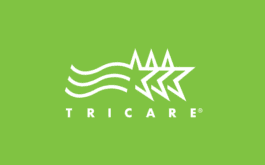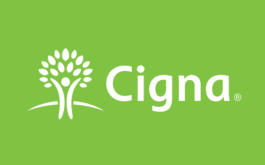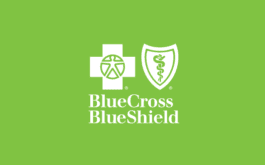Adolescent Program
Helping Your Loved One Overcome an Eating Disorder
When you realize that your child has an eating disorder, it can be incredibly overwhelming. Eating disorders are complex disorders and serious illnesses. As a parent or guardian, there is no “normal” response. Loved ones may experience emotions ranging from grief, anger, sadness, fear, shame, and everything in between. You alone are not responsible for “fixing it.” Eating disorder specialists and medical professionals are here to support and guide you. We would be honored for you to trust Center for Discovery, as we have been providing compassionate and evidence-based eating disorder treatment since 1997.
FIND HELP TODAY
By the Numbers: Eating Disorders in Adolescents
The painful reality is that eating disorders can start at a very young age. This is due to many factors, including but not limited to diet culture, social media, biology, temperament, and peer dynamics. Here is what we know about eating disorders in young people:
| By age 6, girls especially start to express concerns about their own weight or shape. 40-60% of elementary school girls (ages 6-12) are concerned about their weight. (1) |
46% of 9–11-year-olds are “sometimes” or “very often” on diets. (3) |
| 81% of 10-year-old children are afraid of being fat. (2) |
35-57% of adolescent girls engage in crash dieting, fasting, self-induced vomiting, diet pills, or laxatives. (4) |
Real Life Recovery for Your Child
At Center for Discovery for adolescents, patients walk into welcoming, home-like environments and are met with eating disorder professionals who provide compassion, respect, and encouragement. CFD uses evidence-based practices, a propriety dietary program, School Support Program, and comprehensive family support. We view each young person as one-of-a-kind and create an equally unique path that paves the way for hope, healing, and a bright future.
When the adolescent in your life needs help, we want you to take comfort that we will prioritize their healing. We offer various levels of care to meet the adolescent’s needs, which are determined by an assessment process:
Individual and group therapies are available in these programs. We use trauma-informed care and evidenced-based treatments such as cognitive behavioral therapy (CBT), dialectical behavior therapy (DBT) and exposure & response prevention (ERP), along with experiential therapies like music, joyful movement, art and more.
Learn about what to expect and see example schedules to get an idea of treatment at our centers.
WE’RE HERE TO HELP
Connecting After Treatment
After treatment at Center for Discovery, patients are automatically have Discovery for Life™ – free support that’s with them for a lifetime. Our programs also offer a lifetime of free alumni support that includes:
- Support groups (online and in-person)
- Social events dedicated to CFD alumni
- Educational content through the alumni app
- And more
Center for Discovery support groups are several times a week for alumni and families. Specialized eating disorder support groups are also offered for those in recovery from binge eating disorder.
GET HELP TODAY
Locations for Adolescent Programs
Find eating disorder recovery locations across the country.
CALIFORNIA
| Beverly Hills, CA |
Lakewood, CA |
| Sacramento, CA |
Menlo Park, CA |
| Glendale, CA |
San Diego, CA |
| Granite Bay, CA |
Temecula, CA |
| Irvine, CA |
Thousand Oaks, CA |
| La Habra, CA |
Torrance, CA |
| Woodland Hills, CA |
CONNECTICUT
FLORIDA
ILLINOIS
MARYLAND
NEW JERSEY
OREGON
TEXAS
VIRGINIA
WASHINGTON
Take the Next Steps to Get the Help You Need
The adolescent in your life has the chance to turn their life around and heal from the pain of an eating disorder. We want them to lead happy, recovered lives. With individualized treatment, a caring staff, and an aftercare program, your loved one has the chance to live out their dreams and create a better tomorrow. Contact Center for Discovery today.
Sources
- Smolak, L. (2011). Body image development in childhood. In T. Cash & L. Smolak (Eds.), Body Image: A Handbook of Science, Practice, and Prevention (2nd ed.). New York: Guilford.
- McNutt, S. W., Hu, Y., Schreiber, G. B., Crawford, P. B., Obarzanek, E., & Mellin, L. (1997). A longitudinal study of the dietary practices of black and white girls 9 and 10 years old at enrollment: the NHLBI Growth and Health Study. The Journal of Adolescent Health, 20(1), 27–37. https://doi.org/10.1016/S1054-139X(96)00176-0
- Gustafson-Larson, A. M., & Terry, R. D. (1992). Weight-related behaviors and concerns of fourth-grade children. Journal of the American Dietetic Association, 92(7), 818–822. https://pubmed.ncbi.nlm.nih.gov/1624650/
- Boutelle, K., Neumark-Sztainer, D., Story, M., & Resnick, M. (2002). Weight control behaviors among obese, overweight, and nonoverweight adolescents. Journal of Pediatric Psychology, 27(6), 531–540. https://doi.org/10.1093/jpepsy/27.6.531













